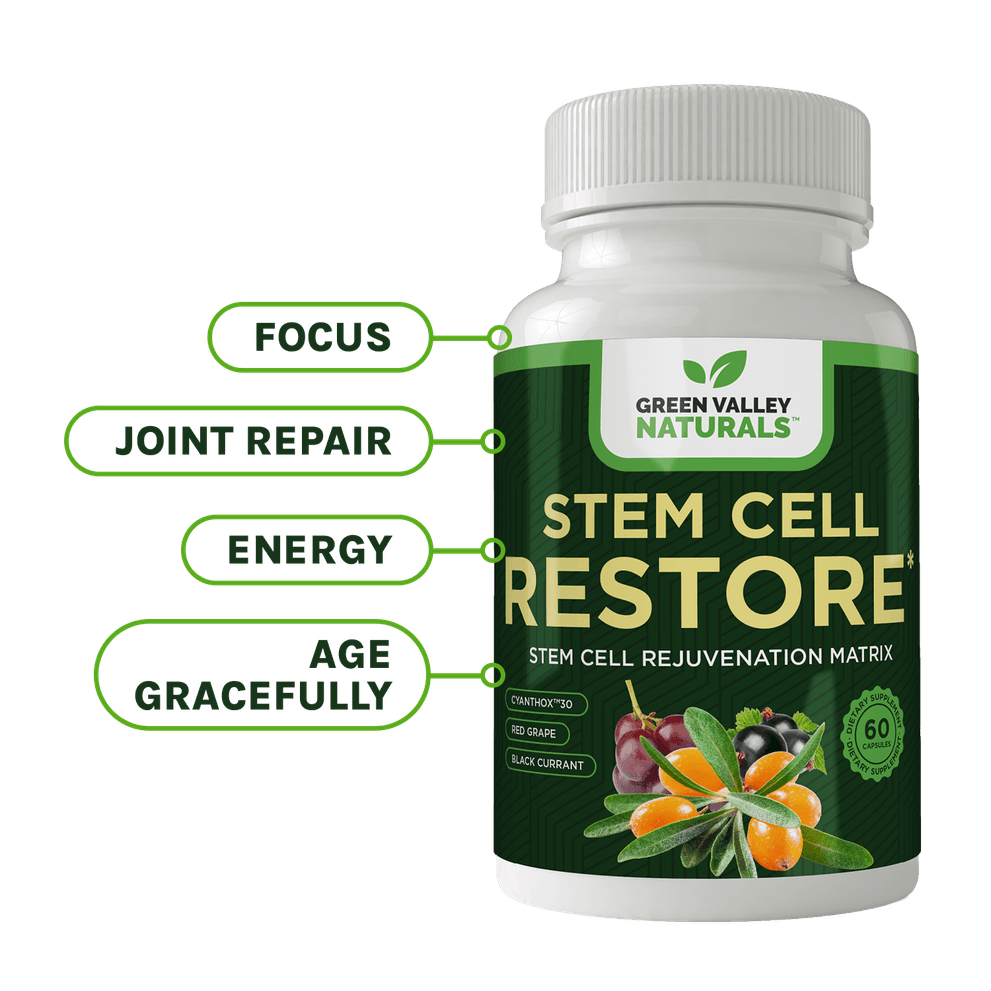
Have you ever thought about how the strength of your bones could influence not just your physical health but how fast you age?
While most people know that weakening bones increases the risk of fractures, few realize that it might be accelerating the aging process at the cellular level.
New research reveals a surprising link between bone health and the shortening of telomeres—those protective ends of chromosomes tied to longevity.
Read on to uncover the hidden connection and what you can do to protect your health and extend your life.
Key Takeaways
- Osteoporosis is linked to an 8% shortening of telomeres, accelerating biological aging and increasing the risk of age-related diseases.
- Inflammation and oxidative stress are key contributors to both osteoporosis and telomere shortening.
- Healthy lifestyle choices, including a diet rich in antioxidants, regular exercise, and proper nutrient intake, are essential for bone health and longevity.
Your Telomeres and Your Bones
If you’re over 50 and are suffering from weakening bones, the chance of breaking a bone is high: 25% for men and 50% for women. This can lead to complications that shorten life, not just in the year following the fracture but up to a decade later.
But that’s not the only way weakening bones can reduce life expectancy. A new study shows that they are linked to rapid shortening of telomeres.
Telomere erosion is one of the hallmarks of aging and is widely used as a marker of biological age.
Although these protective caps at the end of chromosomes naturally shorten with each cell division, they shorten further with many health conditions such as autoimmune diseases, cardiovascular disease, inflammatory bowel disease, colorectal cancer, cognitive impairment, psychiatric disorders, and sleep problems.
Scientists from South Korea wondered whether they also shorten with osteoporosis.
Osteoporosis Shortens Telomeres By Eight Percent
The researchers analyzed the health information and test results on 233 Korean participants aged 55 to 88 who were part of an ongoing study beginning in 2014. The research included demographic information, health status, annual clinical and neuropsychological assessments, and neuroimaging and blood laboratory tests every two years.
From all this data they analyzed whether osteoporosis was independently linked with the rate of telomere shortening. They found that it was. Telomere measurements taken two years apart were 8% shorter in participants with osteoporosis when compared to those without the condition.
As to why osteoporosis shortens telomeres, the researchers believe two factors are involved.
Inflammation And Oxidative Stress
Our bodies are constantly engaged in a delicate balancing act, with inflammation and oxidative stress playing starring roles in both healing and harm. When investigating why osteoporosis patients showed shorter telomeres, scientists uncovered an intricate dance between these two fundamental processes, opening new windows into understanding how bone health connects to cellular aging.
In previous studies, the researchers found that systemic inflammatory cytokine IL-6 influenced telomere shortening. Other studies also showed IL-6 is elevated in patients with depression. In the current study, the team noted depressive symptoms in participants with osteoporosis, lending support to this idea.
Like inflammation, oxidative stress has also been linked to telomere shortening, especially to free radicals called reactive oxygen species. Oxidative stress is also strongly linked to osteoporosis.
“Therefore, we believe,” the authors wrote in the journal Aging in July, “that oxidative stress will accelerate both [telomere] shortening and bone resorption (loss) in humans. Thus, [telomeres] may partly record an individual’s lifetime cumulative burden of inflammation cytokines and oxidative stress, both of which are related to osteoporosis.”
Fragile Bones Are a Top Health Risk
Osteoporosis affects millions of people globally, with the majority being older adults, particularly postmenopausal women. In the United States alone, it is estimated that approximately 10 million people have osteoporosis, and another 44 million have low bone density, putting them at risk. With the aging global population, the number of people affected by osteoporosis is expected to rise, exacerbating the issue.
What's more, fragile bones are also linked to dementia-- but not in the way you might think. Researchers now believe getting regular bone scans can help you prevent dementia.
Following a new report finding that a fracture occurs every single minute in France, Karine Briot, Professor of Rheumatology at Cochin Hospital in Paris, stated that fractures caused by fragile bones “are among the top five highest chronic disease burdens in France, exceeding even pulmonary heart disease and ischemic stroke.
“An initial fracture is associated with a 12.5% risk of re-hospitalization within a year and all-cause mortality of up 16.6% following a hip fracture.”
This is a serious situation that can rob you of your independence as you get older unless you take action.
Eat A Bone-Building Diet
Think of your bones as a living bank account, where deposits and withdrawals happen constantly throughout your life. Just as a financial advisor might recommend diversifying your investments, your body needs a diverse portfolio of nutrients, hormones, and healthy habits to maintain strong bones.
From the antioxidant-rich berries you enjoy at breakfast to the evening walk that gently stresses your bones in all the right ways, every healthy choice you make contributes to your skeletal savings account.
Nutritional deficits include a shortage of protein, which is needed to form the bone matrix and to manufacture hormones, and inadequate levels of vitamin C, which is needed to promote osteoblasts (bone-forming cells) to become fully active. Other important nutrients include vitamin D (cholecalciferol) and calcium. You’ll also need to ensure you’re getting enough other nutrients that work with calcium, such as magnesium and vitamin K.
As we age, this nutritional investment becomes even more crucial, especially for women navigating the hormonal shifts of menopause.
Balance Your Hormones
Menopause is a critical factor in bone weakening because nature's natural bone-protector, estrogen, begins to decline. That puts women at much higher risk of osteoporosis. What’s more, decreased growth hormone and other hormones that diminish with age are also involved in the risk of bone weakening, as is a lack of physical stress on the bones from inactivity.
Here are three effective ways to support hormone balance during this time:
- Incorporate Phytoestrogens into Your Diet: Phytoestrogens are plant-based compounds that mimic the effects of estrogen in the body, helping to ease hormonal fluctuations during menopause. Include foods such as flaxseeds, soy products (like tofu and tempeh), and legumes in your diet. These foods contain natural compounds that can help balance estrogen levels and reduce menopausal symptoms like hot flashes.
- Engage in Regular Exercise: Exercise helps regulate cortisol levels and supports the production of endorphins, which can improve mood and reduce stress. It also helps maintain a healthy weight, which is crucial for hormonal balance. Aim for a mix of aerobic exercises (such as walking, swimming, or cycling) and strength training (like weightlifting or yoga) for overall hormone support. Regular exercise can improve sleep quality, reduce the frequency of hot flashes, and boost energy levels.
- Use Herbal Supplements: Certain herbs have been shown to support hormonal balance and alleviate menopausal symptoms. Consider supplements like black cohosh, which has been used traditionally to help with hot flashes and night sweats. Maca root can also be beneficial for mood and energy, while ashwagandha supports stress management and cortisol regulation. Consult with a healthcare provider before starting any supplement to ensure it’s appropriate for your health needs.
These strategies, combined with hydration and stress management practices, can help support female hormone balance during menopause.
Summary
Osteoporosis not only increases the risk of bone fractures but is also linked to accelerated aging, as it shortens telomeres—the protective caps at the end of chromosomes. This shortening is associated with various age-related diseases and can decrease life expectancy. A study from South Korea found that osteoporosis shortened telomeres by 8% over two years due to factors like inflammation and oxidative stress. Maintaining bone health with a nutrient-rich diet, exercise, and a healthy lifestyle is essential for reducing inflammation and oxidative damage and slowing telomere shortening.
Frequently Asked Questions
What are telomeres, and why are they important?
Telomeres are protective caps at the end of chromosomes that shorten as we age. Their length is a marker of biological aging and overall health.
How does osteoporosis affect telomere length?
A study found that people with osteoporosis experienced 8% more telomere shortening over two years, accelerating the aging process due to inflammation and oxidative stress.
What are the consequences of telomere shortening?
Shortened telomeres are linked to various age-related diseases, including cardiovascular disease, cognitive decline, and weakened immune function.
How can I prevent osteoporosis and maintain bone health?
A diet rich in fruits, vegetables, and essential nutrients like vitamin D, calcium, and vitamin K, along with regular exercise and a healthy lifestyle, can help maintain bone density and reduce inflammation.
Why are women at higher risk for osteoporosis?
Postmenopausal women are at higher risk due to decreased estrogen levels, which play a critical role in maintaining bone density.
- Han M, Kwon HS, Hwang M, Park H, Jeong JH, Park KW, Kim E, Yoon SJ, Yoon B, Jang J, Hong JY, Choi SH, Koh S. Association between osteoporosis and the rate of telomere shortening. Aging (Albany NY). 2024 Jul 25; 16:11151-11161. https://doi.org/10.18632/aging.206034 https://www.aging-us.com/article/206034/text
- https://www.osteoporosis.foundation/news/france-one-fracture-minute-due-osteoporosis-20240903-1021
Stem Cell Restore
Increased Energy from Organic Tibetan Sea Buckthorn Trans-Resveratrol, Vitamin D

